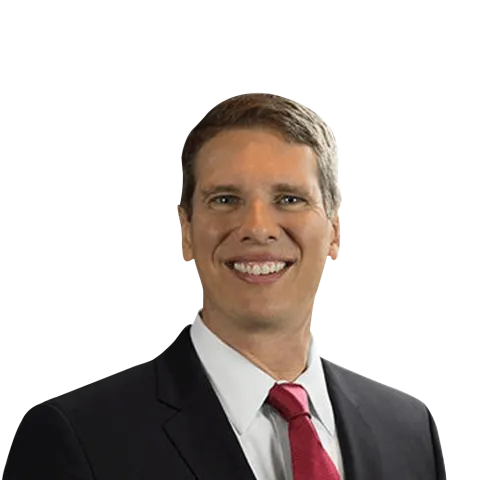Results may vary depending on your particular facts and legal circumstances. The attorney featured above is licensed in Florida. For a full list of attorneys in your state please visit our attorney page.
WORKERS' COMPENSATION ATTORNEY IN THE VILLAGES
Work injuries can turn life upside down. We fight for injured workers to access the medical care and wage support they’re entitled to.
Results may vary depending on your particular facts and legal circumstances. The attorney featured above is licensed in Florida. For a full list of attorneys in your state please visit our attorney page.
The Villages Workers' Compensation
A workplace injury can hurt you both physically and financially. When an injury causes you to miss work and lose wages, it can become difficult to pay medical and household bills. Florida’s workers’ compensation laws help take care of injured workers by providing coverage for their medical bills and lost wages.
However, employers and their insurance companies have shown that they are willing to do whatever they can to minimize their expense. This can include minimizing your injury, claiming it isn’t work-related, suggesting you have received an unreasonable amount of treatment or demanding you return to work unreasonably soon after a serious injury.
When employers in The Villages refuse to stand by employees who have been injured on the job, the workers’ compensation attorneys at Morgan & Morgan may be able to help. If you or a loved one is struggling with a workers’ compensation claim, Morgan & Morgan attorneys could be of service. If you would like to learn more, fill out our free case review form for a no-risk evaluation.
100,000+ Five Star Reviews
The reasons why clients trust Morgan & Morgan.
Results may vary depending on your particular facts and legal circumstances. Based on select nationwide reviews.
Our Results
How It Works
Unsure what to do next? With 35 years of experience, our personal
injury lawyers will guide you every step of the way.

Contact Us 24/7 - It’s Free
Start your claim

Meet your dedicated attorney
Meet the attorneys

We fight for more
Learn more about the case process
Results may vary depending on your particular facts and legal circumstances. The attorneys shown in these photos may not be licensed in your state. To find an attorney licensed in your area, please visit our attorney page.
Local Care
Backed by America’s Largest Injury Law Firm.
$25 Billion
Recovered for clients
nationwide700,000+
Clients and families
served1,000+
Attorneys across
the country1
Click may change your life
The attorney featured above is licensed in Florida. For a full list of attorneys in your state please visit our attorney page.
Results may vary depending on your particular facts and legal circumstances.
Learn More
Injured and not sure what to do next?
We'll guide you through everything you need to know.
What to Do After Being Injured on the Job in Florida
Besides getting medical treatment, the most important thing to do after suffering an on-the-job injury is to report it to your employer. Claims not reported within 30 days may be barred, but as a practical matter, it is best to report a claim as soon as possible. When a claim proceeds as it should, the employee receives care from a physician, who identifies the injury and determines what treatment is necessary and when and if the injured worker can return to duty.
The worker begins receiving biweekly checks for two-thirds of their average biweekly wage, typically calculated based on the preceding three months until they are able to return to work. Unfortunately, Florida workers’ compensation claims do not always proceed as they should, and can be fully or partially denied for a number of reasons:
- The attending doctor (who is typically chosen by the employer) determines that the worker does not have a significant injury, despite complaints of serious pain.
- Even though the worker is clearly injured, the employer determines that the injury did not take place on the job. For instance, the employer suggests that the worker injured their back at home and simply reported it as a work injury.
- After a period of treatment, the attending doctor determines that the worker has recovered and is able to return to work, even though the worker is still in pain.
- After a period of treatment, the attending doctor determines the worker is not recovering as they should and suggests that the worker is exaggerating their symptoms.
Workplace Injury Cases We Handle
With the variety of job industries out there, understandably there are quite a few different types of workplace injuries one can wind up with. Our attorneys in The Villages, however, have the experience needed to tackle them. Some of these cases include:
- Muscular injuries, broken bones, torn ligaments, torn rotator cuffs, and herniated disks from lifting, pushing, or other actions;
- Sickness from exposure to toxins, including occupational diseases like mesothelioma or Black Lung;
- Head injuries like concussions or traumatic brain injuries (TBIs) from falling objects, falls, etc.;
- Tendonitis or other repetitive motion injuries;
- Construction accidents;
- Hearing loss or damage;
- Cold and heat stress or burn injuries from accidents like electrocution; or
- Assorted injuries to the back, spinal cord, shoulder, eyes, knees, neck, hip, respiratory organs, ankles, wrists, feet, and hands.
What Benefits are Available in Florida?
- Injured workers are entitled to receive necessary medical treatment free of charge.
- A worker who is temporarily disabled is entitled to receive biweekly wage loss benefits for up to two years or until they can return to work.
- A worker who is partially disabled— that is unable to perform their previous job but still able to perform a less demanding job— is entitled to wage loss benefits for the difference if the pay rate of their new position is less than 80 percent of their former position, until they are able to return.
- If a worker is still partially disabled after reaching maximum medical improvement, they can continue to receive 75 percent of their benefits for an amount of time determined by the severity of their remaining disability.
A worker who is so badly injured that they can never return to work can receive permanent disability benefits until age 62 (or age 75 if they do not qualify for Social Security). If an injured worker dies before their benefits expire, their family may be entitled to receive them instead.
Ultimately, the specifics of your injury will determine whether you have a case to make a claim.
Contact Morgan & Morgan Today
You deserve benefits for your work-related injury, and you deserve a chance against the powerful insurance company of your employer. Morgan & Morgan may be able to help you in this fight. To learn more, fill out our free, no-risk case review form.





